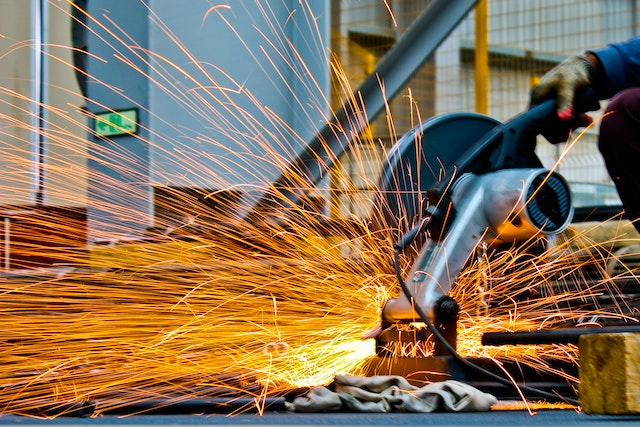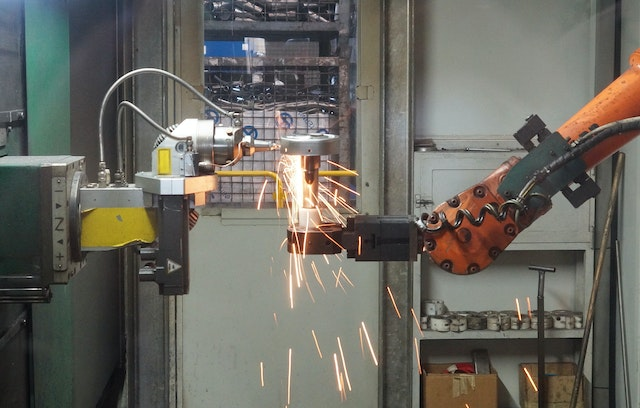In the world of manufacturing, precision is essential. The machining industry, which specializes in crafting components with meticulous accuracy, stands as a testament to this pursuit of perfection. In today’s advanced era, the traditional levers and buttons have given way to computer numerical control (CNC) machining, ushering in a new era of precision with heightened complexity and demands.
Companies in this industry don’t just produce parts; they also ensure quality control in machine parts through agile project management, robust engineering, and procurement. Let’s see how companies maintain quality control in machining today through ISO 9001 certification.
The CNC Revolution
The transition from manual operation to CNC machining has been transformative in the machining industry. CNC machining utilizes computer components to maneuver tools, carving out precisely shaped parts from raw materials. This technology has redefined precision, accuracy, and efficiency in the production of components used in various applications, from aerospace to automotive. However, achieving such precision requires rigorous quality control measures.
ISO 9001: The Guardian of Quality Control
Quality control in the machining industry is the linchpin of the companies. A big part of quality control is the consistent performance of machine parts. Quality control is essentially a practice of ensuring that products meet specific quality standards and are consistent with customer expectations. In this pursuit of excellence, ISO 9001 plays a pivotal role. ISO 9001 is an internationally recognized standard for Quality Management Systems (QMS). It provides a systematic framework that helps organizations consistently meet customer requirements and enhance their processes.
Key Clauses of ISO 9001 Relevant to the Machining Industry
Several clauses within ISO 9001:2015 are particularly pertinent to the machining industry, aiding in maintaining and improving quality control. Let’s delve into a few of them:
Clause 4: Organizational Context
By examining various processes, this clause ensures they are designed for maximum efficiency. Standardizing processes lays a sturdy foundation for continuous improvement. In the machining industry, where precision is crucial, the efficiency of processes directly impacts product quality.
Clause 6: Planning
This clause prompts companies to evaluate risks and opportunities. It helps identify areas of excellence and areas requiring improvement. Dealing with large orders and exceptional precision requires planning, which is fundamental to quality control in machining.
Clause 7: Support
Effective training and clear process documentation are vital for consistent results in machining. This clause encourages companies to ensure employees are well-trained and can follow processes accurately, contributing to quality control.
Clause 8: Operations
This clause emphasizes the importance of planning and developing controls for operations, products, and services. In machining, where precision is critical, meticulous operational planning is essential to ensure the highest quality of components.
Clause 9: Performance Evaluation
Developing a QMS is only the beginning of quality control in machining. This clause underscores the need to utilize QMS results to implement corrective measures and process improvements. In machining, learning from mistakes is essential for continuous quality enhancement.
The Makings Of Quality Control in Machining
Quality control in machining involves various aspects. Engineers and machinists meticulously inspect and assess machines, parts, and processes to maintain consistency and precision. These assessments cover:
Machine Calibration: Machining centers and CNC machines require regular calibration to ensure they produce components with the exact specifications. Precision in calibration is non-negotiable.
Material Inspection: The quality of raw materials used in machining directly impacts the final product. Rigorous material inspection checks for imperfections and inconsistencies.
Dimensional Accuracy: Components produced in the machining industry must adhere to precise dimensional standards. Advanced measurement tools and techniques are employed to verify dimensional accuracy.
Surface Finish: In industries like aerospace, a smooth surface finish is crucial. Quality control ensures that components meet surface finish requirements.
Tolerance Checks: Tolerances in machining can be incredibly tight. Precision instruments are employed to ensure that components meet specified tolerances.
Elevating Quality Control Through ISO 9001 Certification
ISO 9001 certification is not just a badge of honor; it’s a systematic approach to quality control. The following ways demonstrate how ISO 9001 enhances quality control in the machining industry:
Standardized Processes
ISO 9001 necessitates documented processes. This standardization ensures that each step in the production process is meticulously planned, executed, and monitored.
Risk Mitigation
The machining industry often deals with complex projects where errors can be costly. ISO 9001’s focus on risk evaluation helps identify potential pitfalls and take proactive measures.
Continuous Improvement
ISO 9001 places a strong emphasis on the cycle of Plan-Do-Check-Act (PDCA). This cycle promotes a culture of continuous improvement, where lessons learned from past projects lead to better processes and products.
Customer Satisfaction
Meeting and exceeding customer expectations is a hallmark of ISO 9001. The standard encourages companies to understand customer needs and deliver products that align with those requirements, resulting in increased customer satisfaction.
Why Quality Control Is Vital InThe Machining Industry
The significance of quality control in the machining industry cannot be overstated. Here’s why it matters:
Safety: In industries like aerospace and automotive, precision and quality are directly linked to safety. Faulty components can lead to catastrophic consequences.
Cost-Efficiency: Quality control helps detect and rectify errors early in the production process, reducing the cost of scrap and rework.
Competitive Edge: Consistently delivering high-quality components gives machining companies a competitive edge. Quality is a factor that customers prioritize when choosing suppliers.
Regulatory Compliance: Many industries, including aerospace and healthcare, have stringent regulatory requirements. Quality control measures help ensure compliance with these regulations.
Quality Control In Machining With BCS’s ISO 9001 Expertise
Consistent quality and performance in machining are paramount for precision and excellence. Choose our team at BCS, the trusted ISO certification services company, to guide your company in achieving ISO 9001 for the machining industry. We offer reliable ISO consulting and certification services, ensuring your business reaches the highest standards of quality. Elevate your operations with the expertise of ISO 9001 certification consultants. Get in touch with us today!




